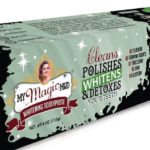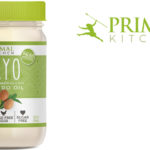Juniper Oil: Improve your Blood Circulation

(DetoxifySamurai) If you live in the northern hemisphere then you have probably seen a Juniper shrub or tree. They exist in Europe, Southwest Asia and North America. There are approximately 55 species of junipers are found worldwide, and a dozen or so are indigenous to the United States.
 Juniper berries were known to the Ancients. They were found in prehistoric Swiss lake dwellings. Egyptian doctors used the oil as a laxative as far back as 1550 b.c. The Romans also used it as a strong antiseptic; and in cooking, they flavored with juniper berries instead of pepper. They were burned in ancient Greece to combat epidemics and more recently the wood was burned in French hospitals during the smallpox epidemic of 1870.
Juniper berries were known to the Ancients. They were found in prehistoric Swiss lake dwellings. Egyptian doctors used the oil as a laxative as far back as 1550 b.c. The Romans also used it as a strong antiseptic; and in cooking, they flavored with juniper berries instead of pepper. They were burned in ancient Greece to combat epidemics and more recently the wood was burned in French hospitals during the smallpox epidemic of 1870.
In the Middle Ages, juniper was considered a panacea for headaches and kidney and bladder problems. St Hildegarde prescribed it for pulmonary infections when crushed in a hot bath, and for high temperatures, advice later confirmed by the School of Salerno.
The Zuni Native American people used the berries to assist them in childbirth. Other Native Americans gathered juniper berries and leaves to treat infections , arthritis, and wounds. British herbalists used juniper to promote menstruation. Nineteenth-century American herbalists used juniper as a remedy for congestive heart failure, gonorrhea, and urinary tract infections. Juniper has also been used as a traditional remedy for cancer , arthritis, gas, indigestion, warts, bronchitis, tuberculosis, gallstones, colic, heart failure, intestinal disease, gout , and back pain. The berries were often eaten to relieve rheumatism or to freshen bad breath. When treating patients, doctors often chewed juniper berries to prevent infection.
Essential Oil
Juniper essential oil is obtained by simultaneous distillation and extraction from the fresh and dried needles and dried berries of the plant. The berries themselves are high in flavonoid and polyphenol antioxidants that have strong free radical scavenging abilities. Juniper berry oil contains over 87 different active compounds conferring a wide variety of benefits such as:
Therapeutic properties include: antiseptic, antispasmodic, astringent, antirheumatic, antitoxic, diuretic, depurative, nervine, emmenagogue, sedative, and rubefacient, which make this oil a perfect aromatherapy remedy for a number of health issues.
Essential juniper oil is used for: arthritis, gout, muscle aches and pains, oily skin, acne, rheumatism, and toxin build-up. Stress-related issues as well as nervous tension and anxiety can also be treated using juniper berry oil in aromatherapy.
It also treats arthritis, hyperglycemia, tuberculosis, bronchitis, pneumonia, ulcers, intestinal worms, to heal wounds and cure liver disease in traditional medicine (Burits et al., 2001; Loizzo et al., 2007)
Juniper oil blends well with bergamot, basil, black spruce, black pepper, clary sage, caraway, lavender, peppermint, citronella, neroli, cypress, eucalyptus, petitgrain, pine, marjoram, rosemary and thyme, and that blending quality makes it a versatile essential oil.
Juniper oil contains monoterpenes: myrcene, limonene, sabinene, pinene, and camphene, as well as terpinenol and borneol which are beneficial for the intestinal tract, acting as antiseptic and purifying agents as well as stimulants.
How to use
Juniper berry oil can be diffused throughout your home just like a scented candle or inhaled directly from the bottle. It is considered the best aromatherapy oil for treating urinary stones, pyelitis, and cystitis. There is evidence showing that essential oils are absorbed into the bloodstream when inhaled since the large amount of blood vessels in the lungs absorb the oils and then circulate them throughout the body. The scent from juniper berry and other essential oils can also reach the brain quickly due to their fast-acting effects on the olfactory system. It can also cleanse and purify the air.
When juniper oil is massaged into the body or is used diltued in a bath, it relieves muscle cramps and conditions of the skin. You can use juniper berry oil topically to help relieve a wide range of skin and hair problems, such as eczema, weeping eczema, acne, psoriasis, hair loss, and dandruff. You should always first dilute juniper oil with a carrier oil like coconunt oil in a 1:1 ratio before applying it directly to your skin. Use several drops of essential oil mixed with one to two teaspoons of coconut or jojoba oil, then massage it into any affected area. The oil penetrates your skin and passes into the bloodstream, then makes its way into different areas of the body for pain reduction and other therapeutic benefits. It also helps with fluid retention and can help prevent cellulite formation. Juniper berry oil is also an antiseptic that protects wounds from infection and tetanus.
It can also be used as a compress for eczema, arthritis and general infections
Is Juniper Berry Oil Safe?
Juniper berry oil is non-toxic and non-sensitizing, although there are some people who have a reaction to it, so use it in moderation. Make sure you do a skin patch test before using juniper berry oil. Apply a diluted drop on your arm and see if any reaction occurs. This oil blends well with cypress, cedarwood, lavender, lime, grapefruit, geranium, vetiver, lavandin, bergamot, lemongrass, and clary sage.
Because it can stimulate the uterine muscle, juniper berry oil should not be used during pregnancy. It is not recommend for nursing moms and very young children as well. Those who suffer from any type of liver or kidney disease should refrain from using juniper berry oil.
The Alliance of International Aromatherapists (AIA) does not endorse internal therapeutic use (oral, vaginal or rectal) of essential oils unless recommended by a health care practitioner trained at an appropriate clinical level. An appropriate level of training must include chemistry, anatomy, diagnostics, physiology, formulation guidelines and safety issues regarding each specific internal route (oral, vaginal or rectal). Please refer to the AIA Safety Guidelines for essential oil use.






